Veterans, PTSD, and Psychedelics Cross Paths at Santa Barbara’s Psychedelic Social Club
District216 Hosts Panel of Veterans Turned Healers to Promote New Psychedelic Therapies
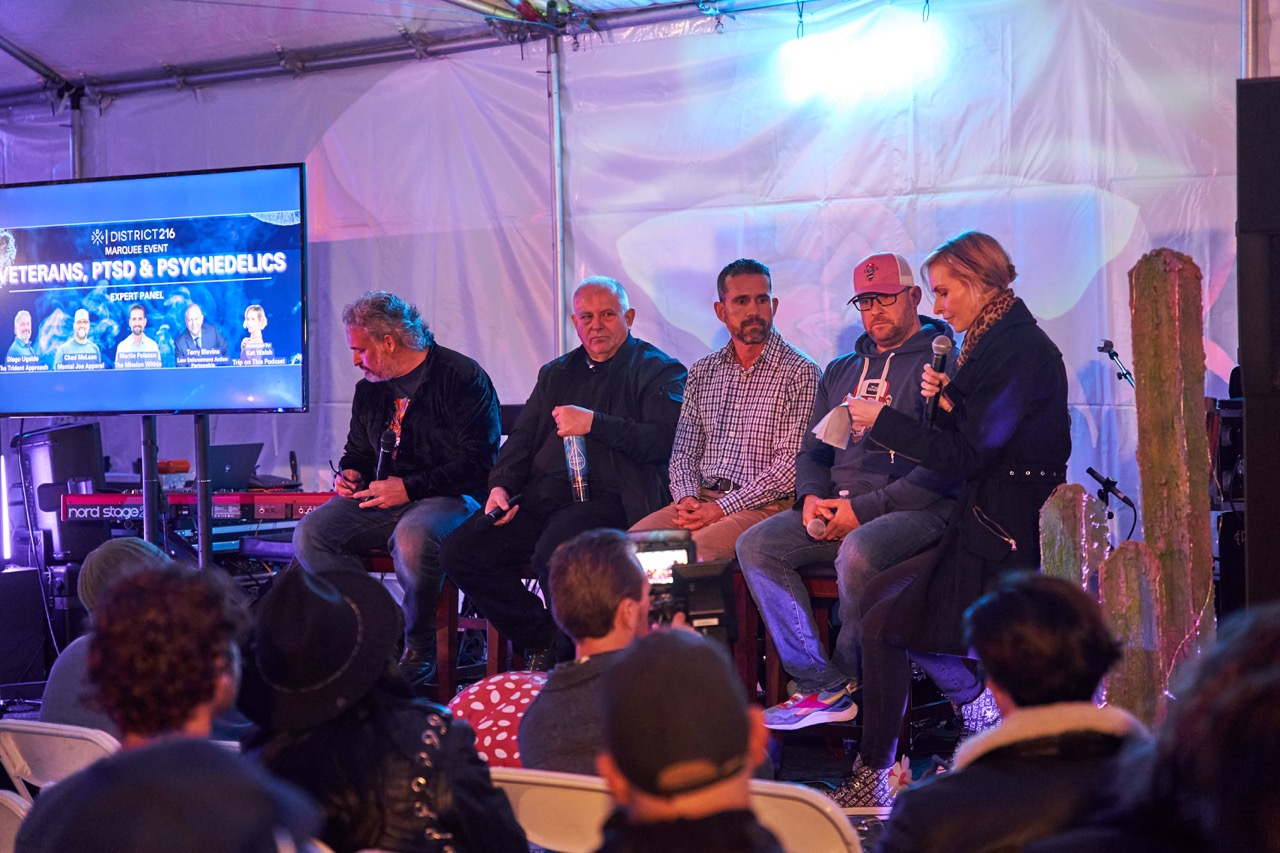
Around three years ago, former Navy SEAL Michael “Punky” Higgs was moments away from taking his own life when a friend knocked on his door. He considered waiting for his friend to leave, but ultimately, he decided to put the gun down and open it.
“Hey,” his friend told him, “I got accepted to The Mission Within, but I’m not doing it without you.”
Higgs shared this turning point in his life during psychedelic social club District216’s marquee event on Saturday, January 20, focusing on “Veterans, PTSD, and Psychedelics.”
Projections of galaxies swirled on the tent walls sheltering the front yard from Saturday night’s rains. Audience members munched on charcuterie and sipped cannabis-infused “elixirs,” while others toked on the balcony upstairs. The smell of weed lingered in the air.
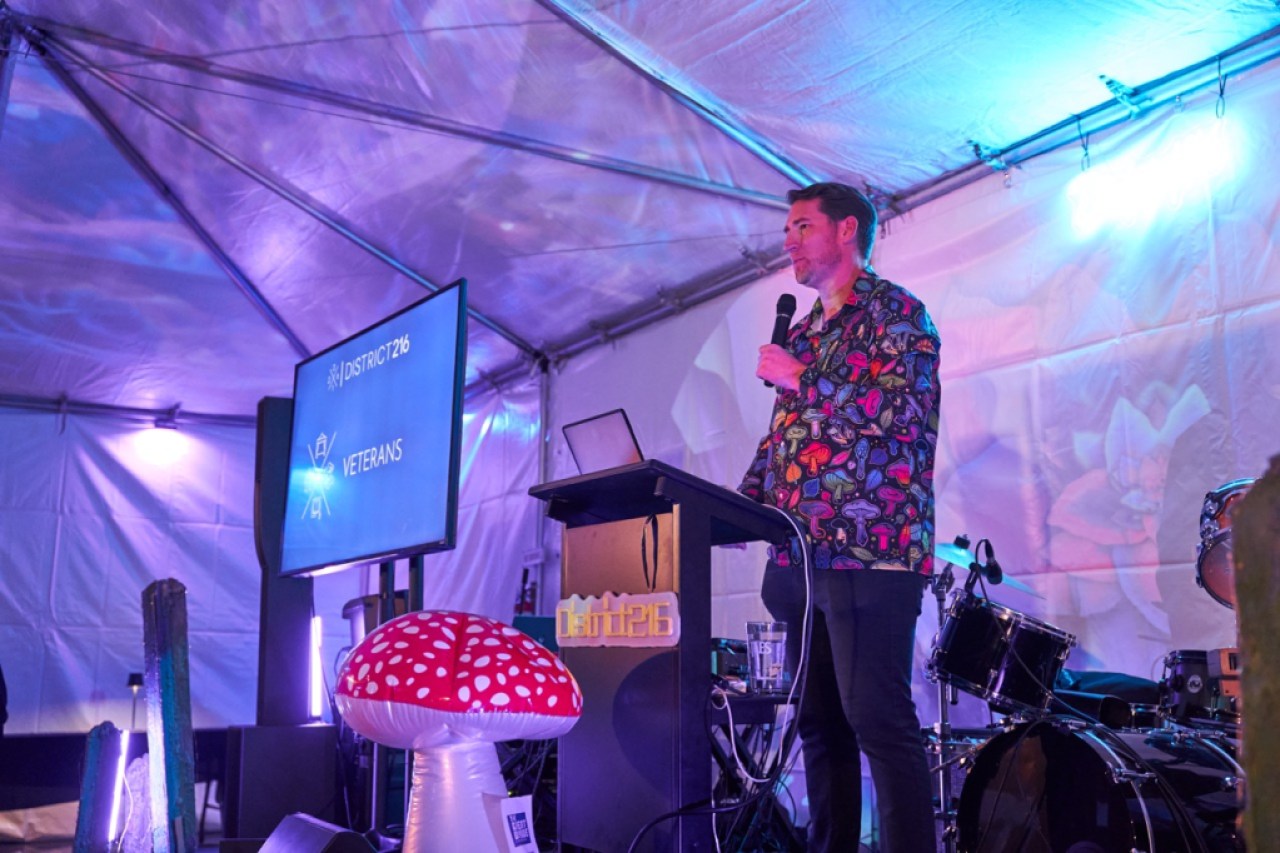
On a stage decorated with fake cacti and an inflatable mushroom, District216’s founder Jacob Tell opened the night by explaining how veterans bear the “scars of war” but lack access to safe and effective treatments to heal from those scars.
Following the war on drugs, the “legal freedoms” for veterans have been alcohol, painkillers, SSRIs, and sleeping pills — substances with high risks of abuse, explained Tell.
“Psychedelic therapies,” he told the crowd of over 200 people, “are tangible freedoms for veterans,” involving lower risks of abuse and better potential for therapeutic use.
Higgs displayed an unexpected level of vulnerability for a man who spent more than 30 years in Naval Special Warfare. He described frequently returning home to his wife and daughter, both of whom struggled with opioid addiction.
After his daughter died from a fentanyl overdose, Higgs “bottomed out,” and his drinking got out of hand. “I came out unscathed,” he said of his time in the Navy, “until I wasn’t.”
His “flashbacks” raged out of control, though he never had the intention of getting help himself.
Then his friend showed up at his door and invited him to The Mission Within, a six-week clinical psychedelic program pairing therapy with a “medicine retreat” using Ibogaine, 5-MeO-DMT, and Psilocybin — psychedelic substances derived from plant roots, toad venom, and fungi.
According to The Mission Within’s website, the program has provided treatment for post-traumatic stress disorder (PTSD) and minor traumatic brain injuries to almost 1,000 veterans and their spouses since 2017. Their goal is “a future free of veteran suicide.”
Following treatment, “participants and their therapists report significant improvement in their condition, with as many as 80 percent no longer meeting the diagnostic criteria for PTSD.”
The program worked for Higgs, and he went on to become a “psychedelic integration coach” and now works as a program director for The Honor Foundation, which aims to help veterans transition to the next stage of their lives.
“I got my life back tenfold,” he told his co-panelist, Susannah Rose Stokes.
Stokes served as both a Marine Corps officer and Air Defense Control Officer in the U.S. military, and is a victim advocate for survivors of sexual assault like herself.
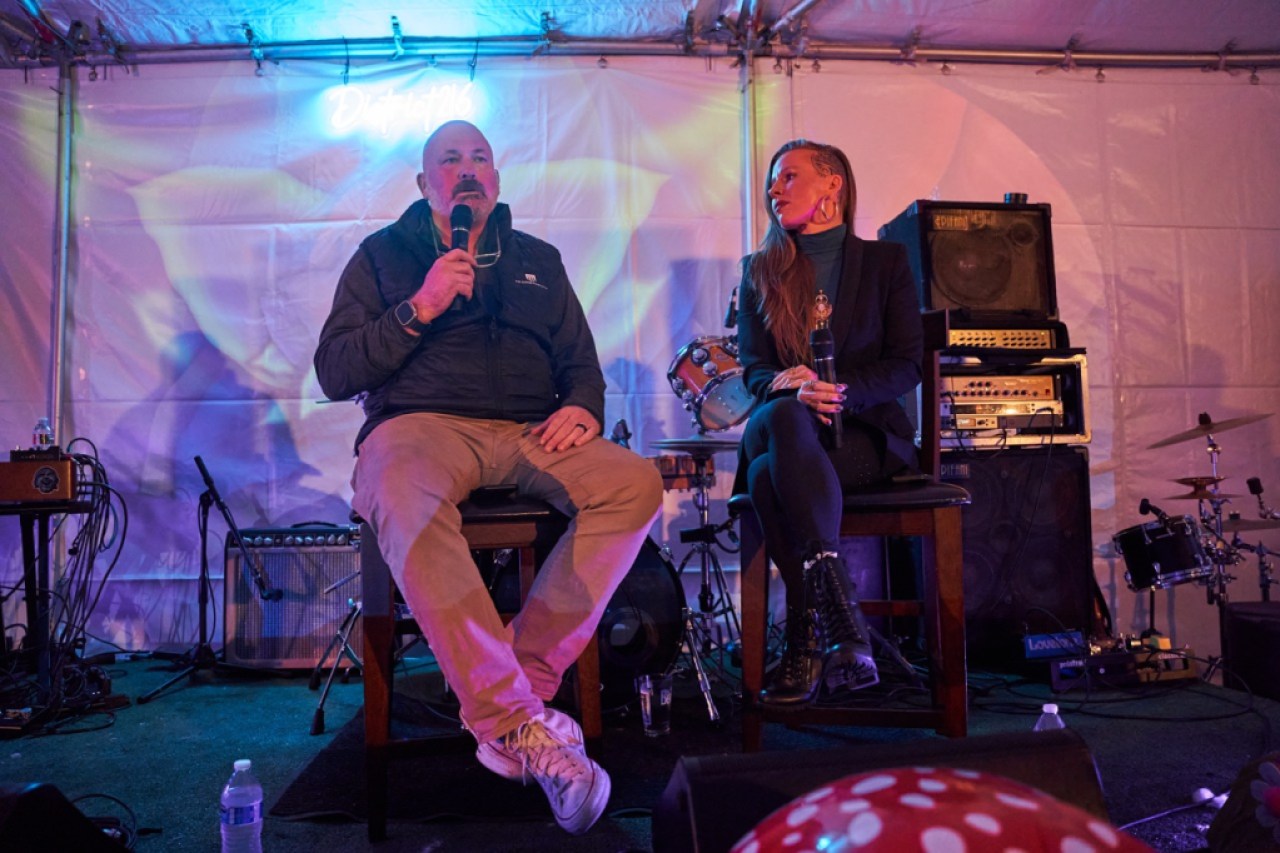
Following multiple hardships both in and out of service, she “went through a process of spiritual nihilism” and lost her faith. “I had no visible trauma, and yet I was screaming inside,” she said.
All of that led her to take LSD, or acid, recreationally, and meditate on top of a mountain. Through that experience, she realized that “everything that happened needed to happen” to get her to where she is today. She now works as a healer and guide through the House of Embodied Metamorphosis.
Together, Higgs and Stokes emphasized the importance of compassion and self-forgiveness and the benefits of taking risks and having faith while recovering from trauma.
That was followed by a four-person expert panel of men trying to change the status quo around mental health care for veterans and law enforcement. They answered questions about working through different types of trauma, and integration, legalization, research, and stigma within the realm of psychedelic therapies.
“It’s gonna be about money in the end, once we get them to accept the science of it,” said Terry Blevins of the Law Enforcement Action Partnership, a former police officer and CEO of a cannabis security company. “But the progress that’s been made with veterans has laid the foundation.”
The National Defense Authorization Act recently authorized the study of psychedelics within military populations, and The Department of Veterans Affairs is now pursuing research to understand how psychedelics can treat PTSD and depression in those populations.
“The scariest thing is sitting in that trauma, but getting through it is the only way out,” said Diego Ugalde, a retired Navy SEAL turned Psychedelic Integration Coach. “You learn to just be, no matter what is around you. That’s the greatest gift.”
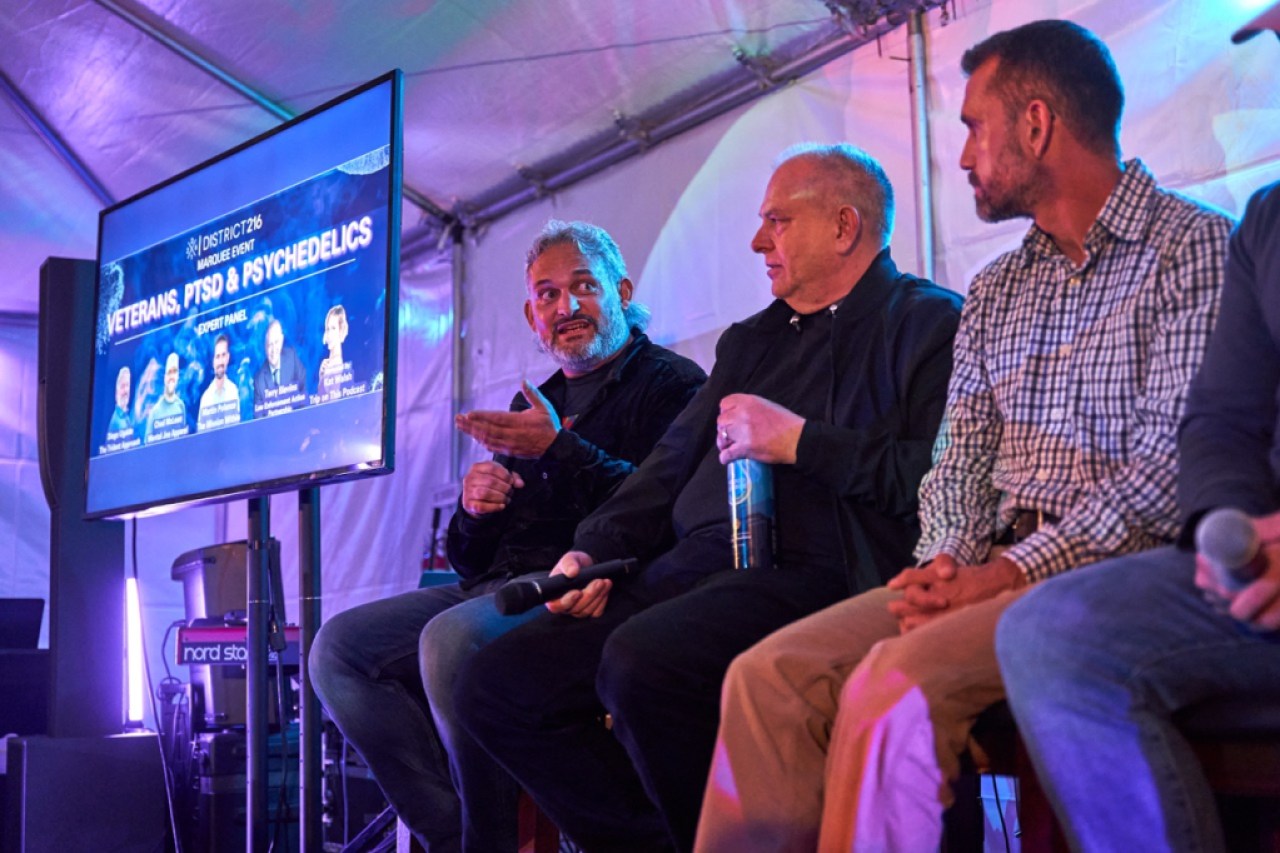
However, the panelists emphasized that these therapies are not for everyone. Some prescription drugs can have negative interactions with psychedelic substances. People should be monitored and screened for certain conditions, such as poor cardiovascular health, that may be worsened by the use of psychedelic substances.
“As a coach, we meet people where they are,” Ugalde said. “You go to deep places, places I never knew existed. To force someone into that space is not ethical, it’s not healthy, and it can be very traumatic.”
Panelists also stressed the importance of integration — fostering continued healing after psychedelic treatments, including finding a “nucleus of support” and “putting in the work.”
For Chad McLean — founder of Mental Joe Apparel, a nonprofit that aims to spread awareness around mental health and raise funds for those who need help — integration was smoking a joint or two and going to the gym, which allowed him to “connect the dots of past trips.”
Tell said that following a smaller, Wednesday night discussion panel with McLean, he “knew” he had to do a bigger event. Once the speakers finished, food from Blue Owl was served, and The Great Divide, a Phish cover band, began to play.
“It was incredible seeing vulnerability in these people taught to be anything but vulnerable,” Tell said of the night. “The beauty of all this is the humanization and healing of people who were essentially taught to be tools of war.”
Premier Events
Thu, May 02
5:00 PM
Santa Barbara
Things with Wings at Art & Soul
Sat, May 04
10:00 AM
Lompoc
RocketTown Comic Con 2024
Thu, May 02
5:00 PM
Santa Barbara
100th Birthday Tribute for James Galanos
Thu, May 02
5:00 PM
Santa Barbara
Meet the Creator of The Caregiver Oracle Deck
Fri, May 03
4:00 PM
Santa Barbara
Santa Barbara Fair+Expo “Double Thrill Double Fun”
Fri, May 03
8:00 PM
Santa barbara
Performance by Marca MP
Sat, May 04
10:00 AM
Solvang
Touch A Truck
Sat, May 04
11:00 AM
Santa Barbara
Mental Wellness Center’s 28th Annual Arts Faire
Sat, May 04
11:00 AM
Santa Barbara
Community History Day
Sat, May 04
3:00 PM
Solvang
The SYV Chorale Presents Disney Magic Concert
Sat, May 04
7:00 PM
Santa Barbara
A Star Wars Cantina Celebration: Renegades, Rebels, and Rogues
Tue, May 07
7:00 PM
Santa Barbara
Theatre Eclectic Presents “The Great Gatsby” – Wake Auditorium
Thu, May 02 5:00 PM
Santa Barbara
Things with Wings at Art & Soul
Sat, May 04 10:00 AM
Lompoc
RocketTown Comic Con 2024
Thu, May 02 5:00 PM
Santa Barbara
100th Birthday Tribute for James Galanos
Thu, May 02 5:00 PM
Santa Barbara
Meet the Creator of The Caregiver Oracle Deck
Fri, May 03 4:00 PM
Santa Barbara
Santa Barbara Fair+Expo “Double Thrill Double Fun”
Fri, May 03 8:00 PM
Santa barbara
Performance by Marca MP
Sat, May 04 10:00 AM
Solvang
Touch A Truck
Sat, May 04 11:00 AM
Santa Barbara
Mental Wellness Center’s 28th Annual Arts Faire
Sat, May 04 11:00 AM
Santa Barbara
Community History Day
Sat, May 04 3:00 PM
Solvang
The SYV Chorale Presents Disney Magic Concert
Sat, May 04 7:00 PM
Santa Barbara
A Star Wars Cantina Celebration: Renegades, Rebels, and Rogues
Tue, May 07 7:00 PM
Santa Barbara

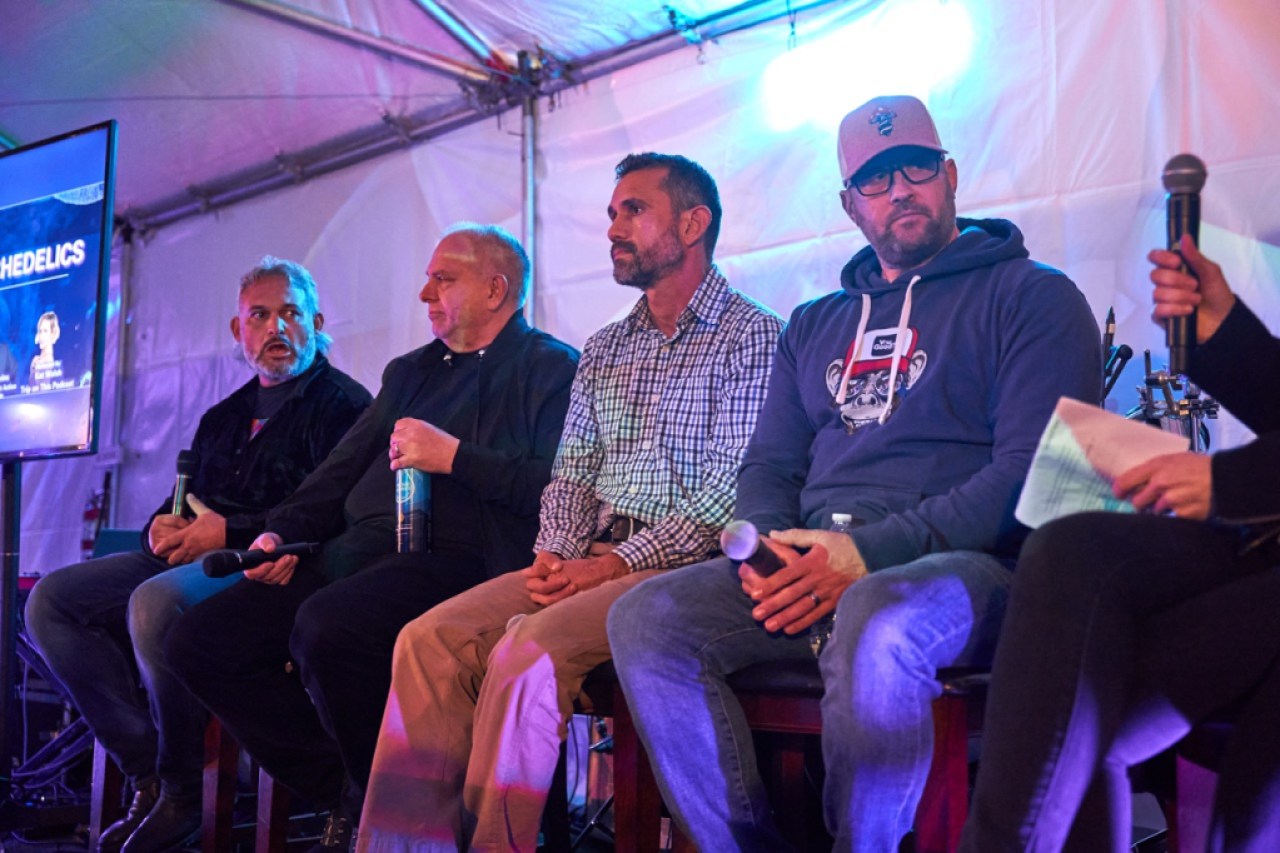
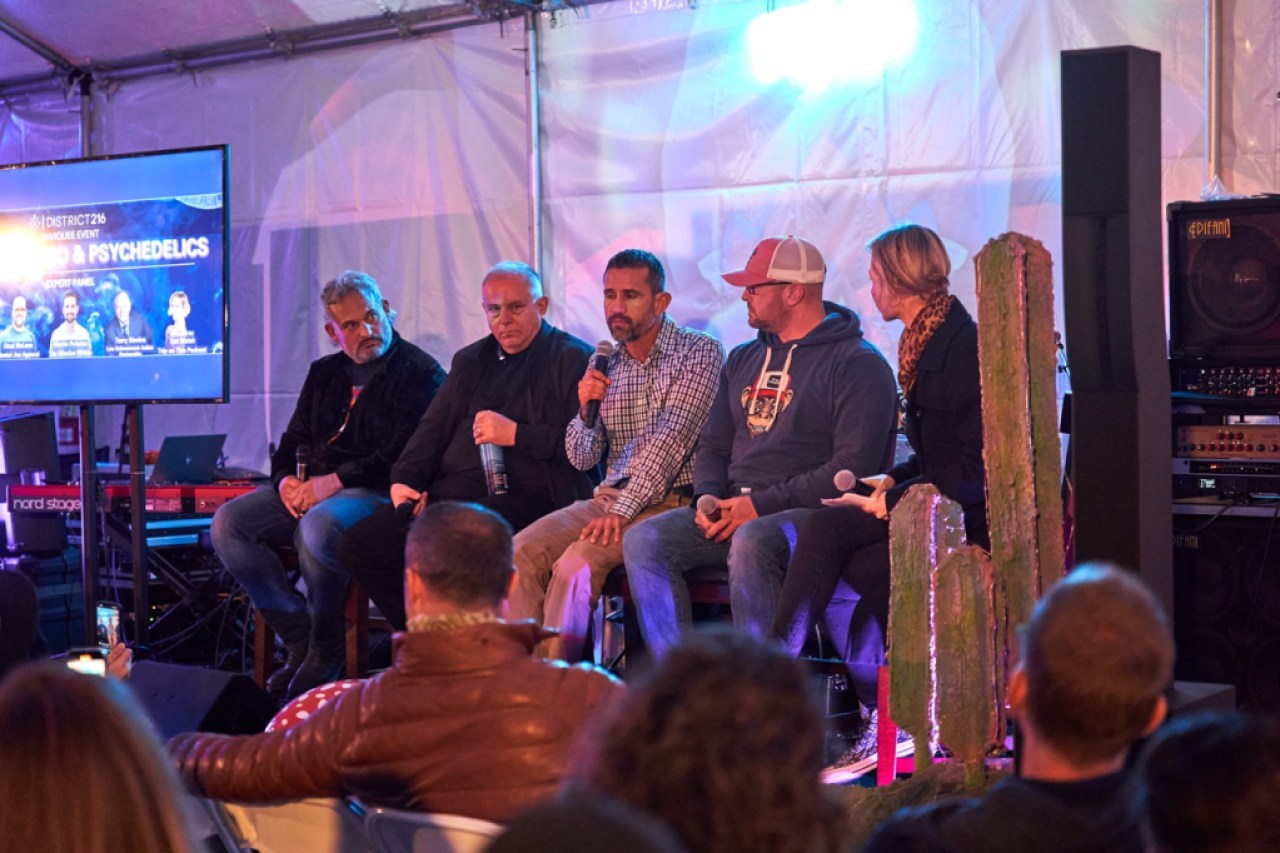
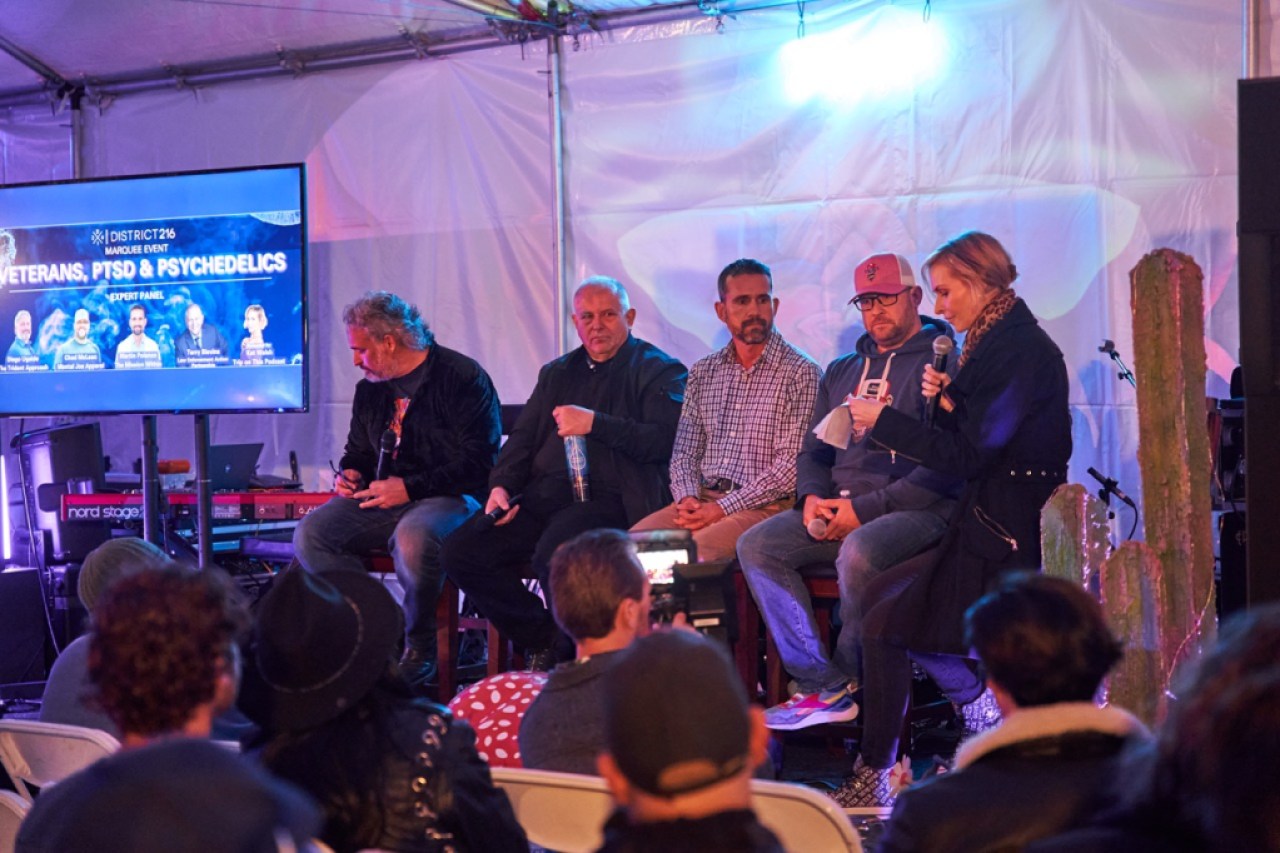
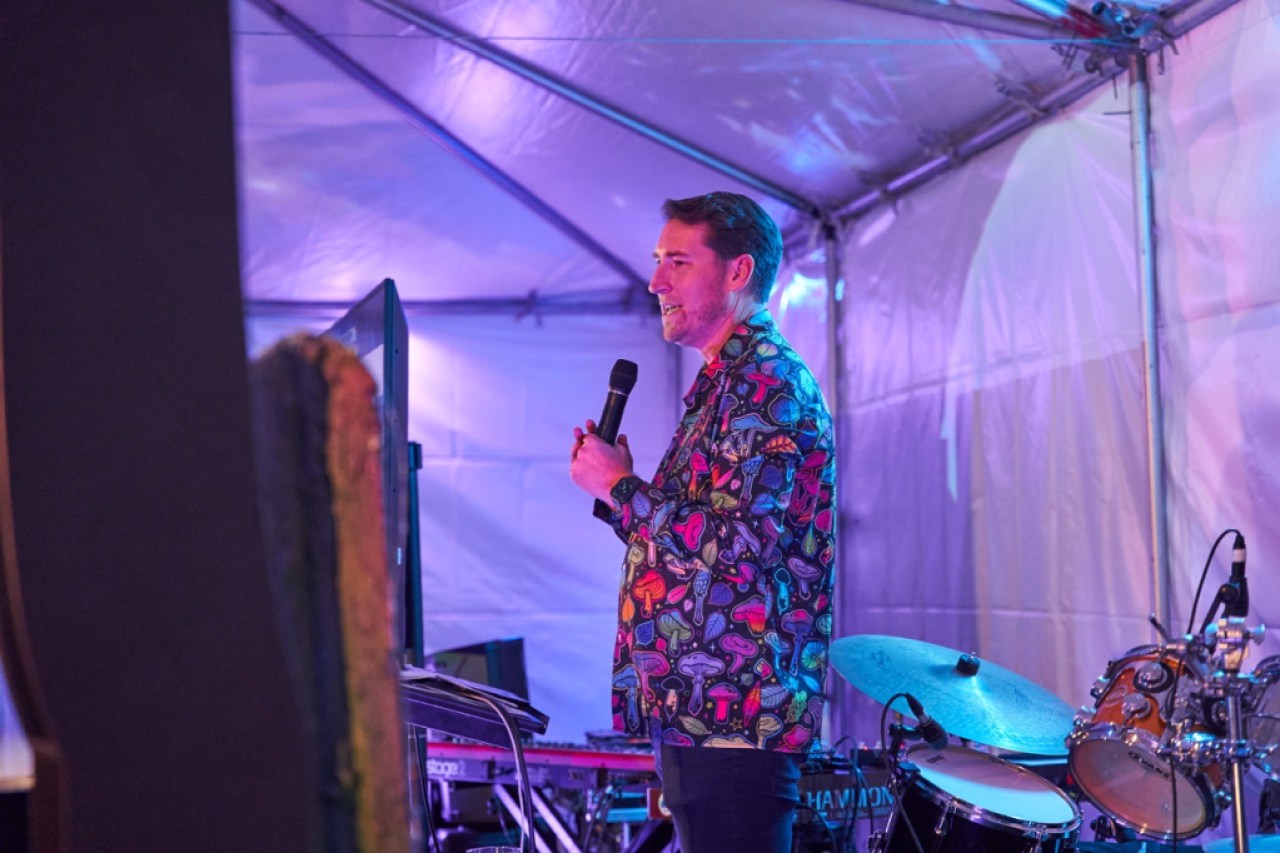
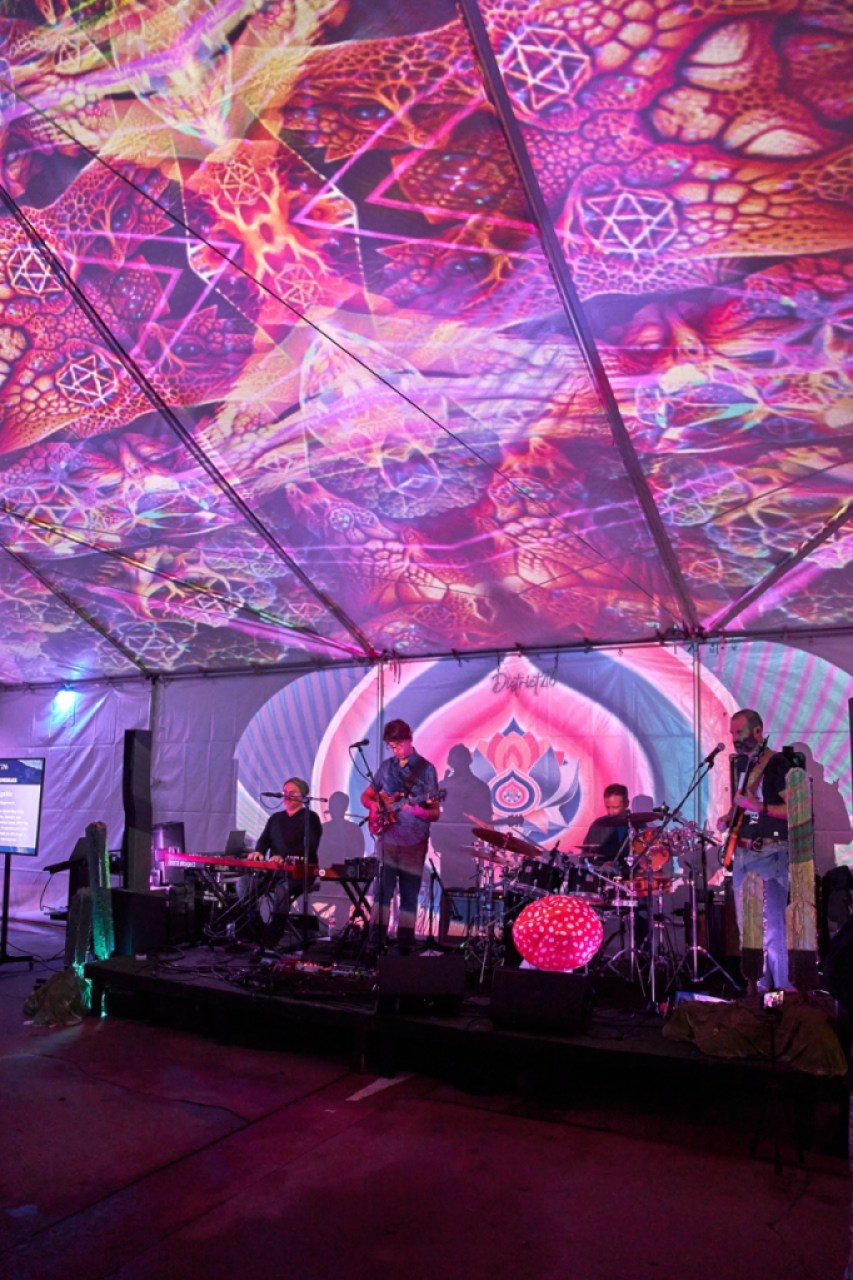
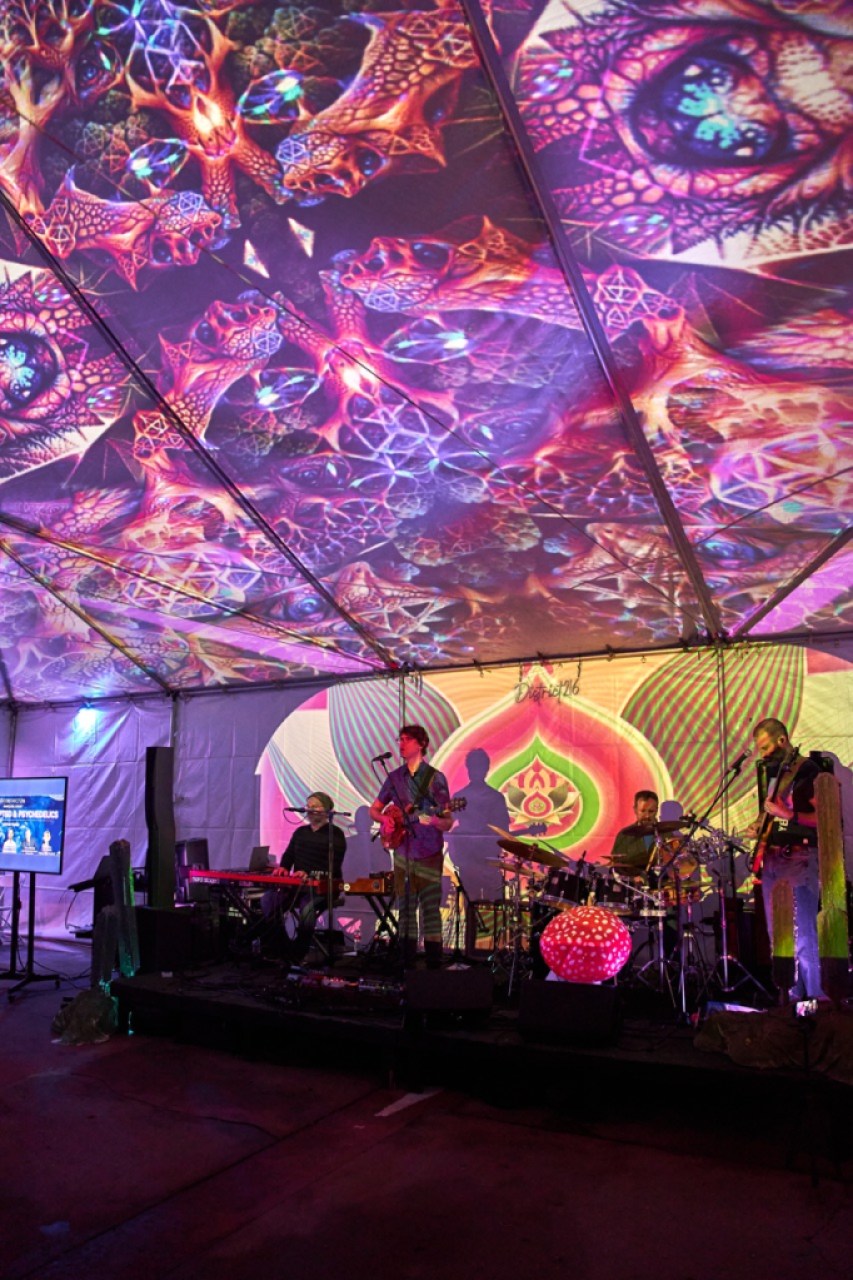
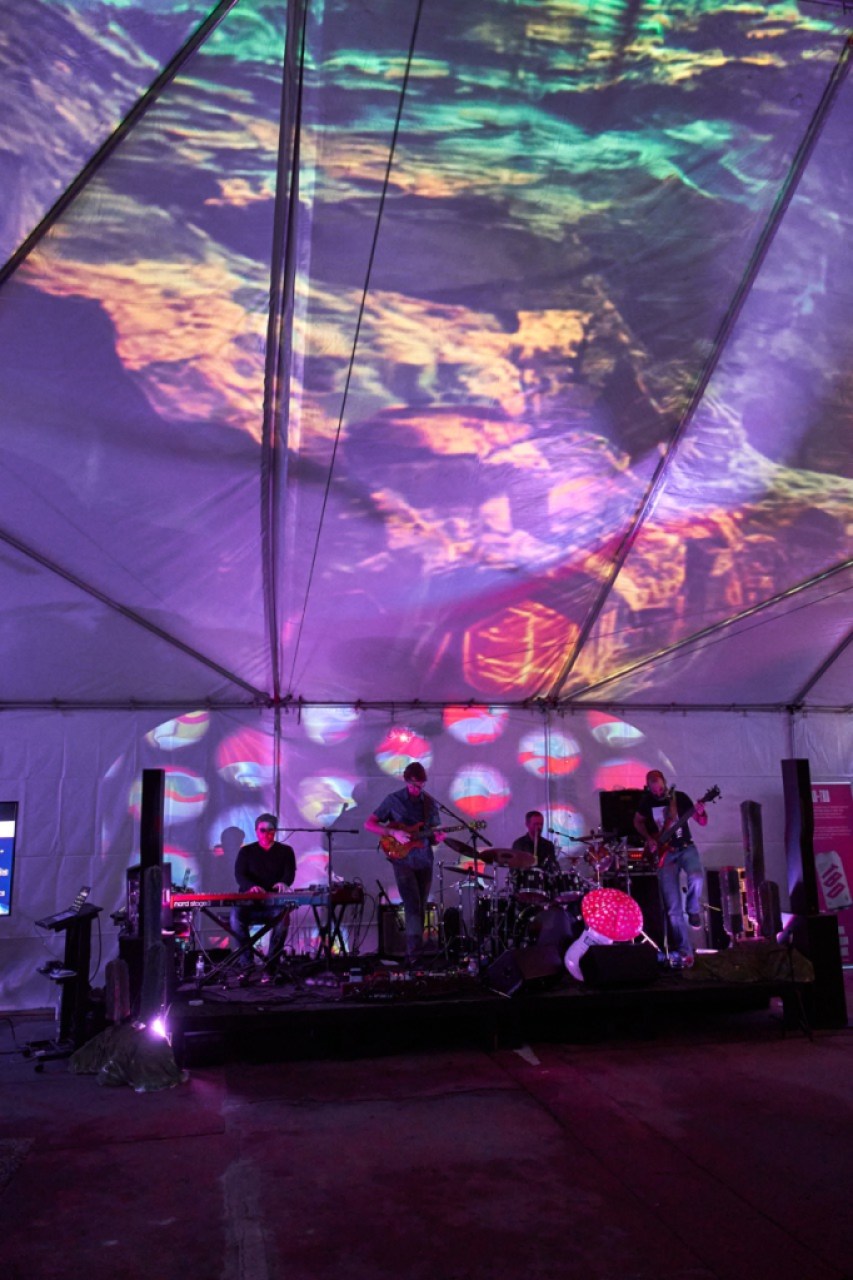
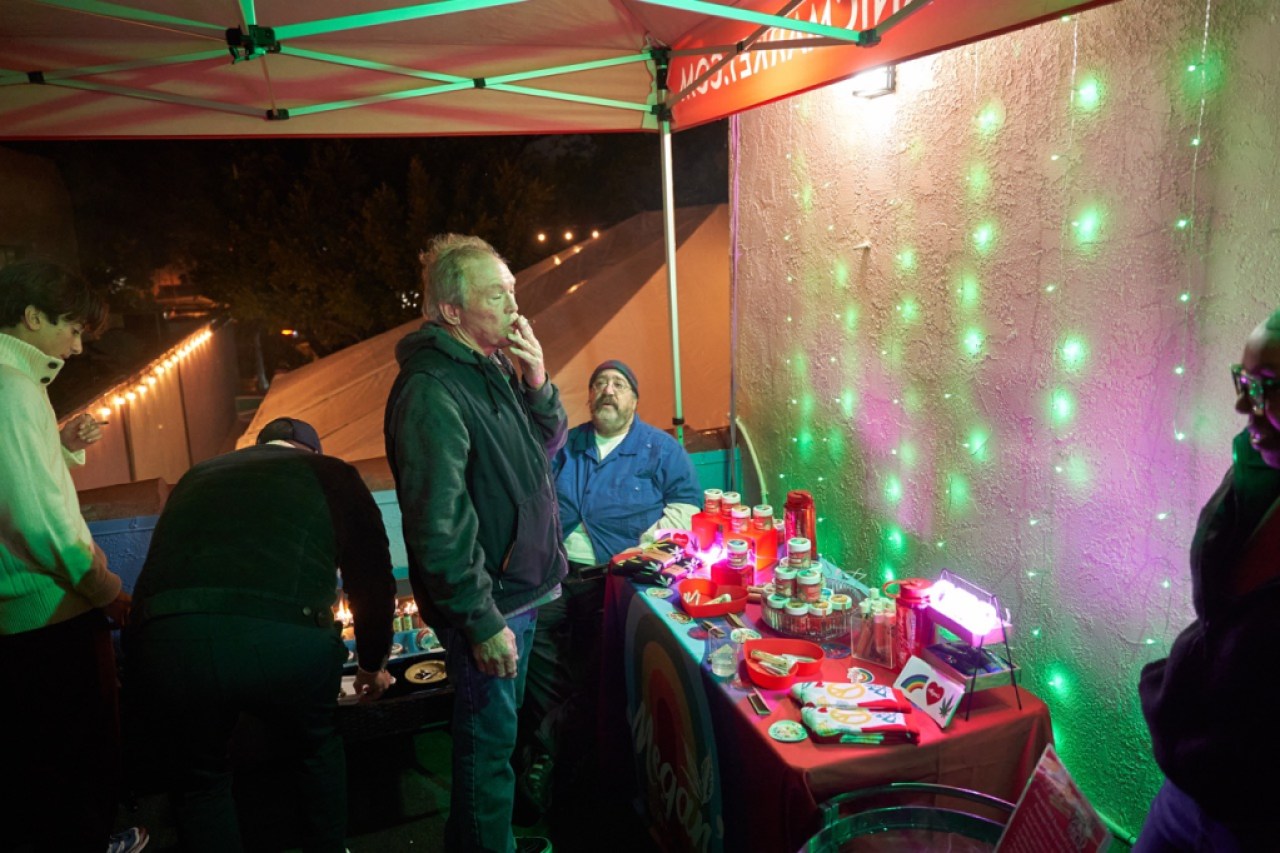
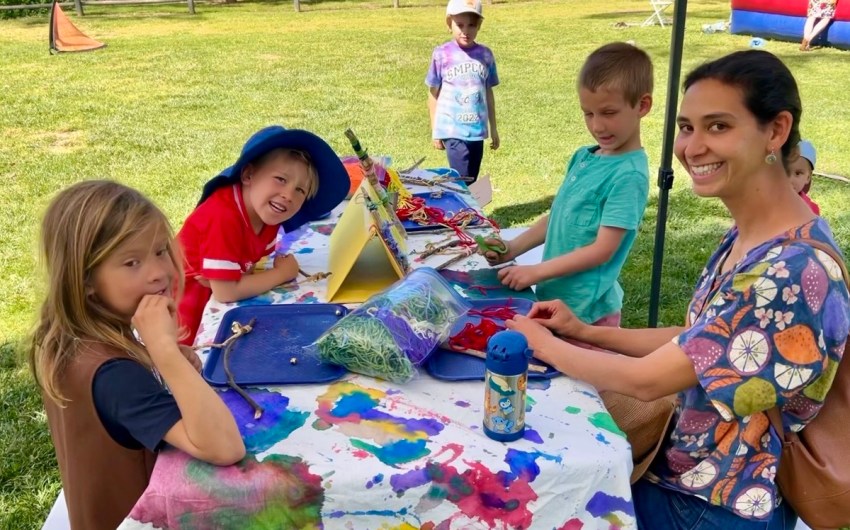
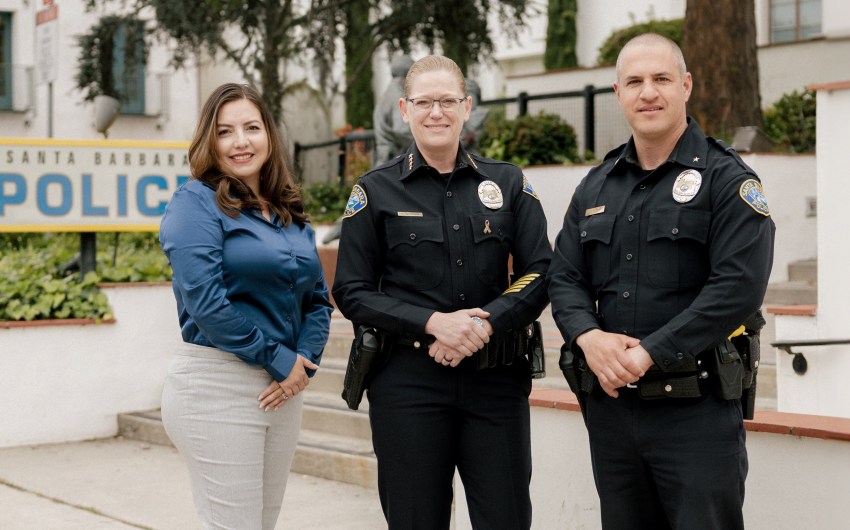
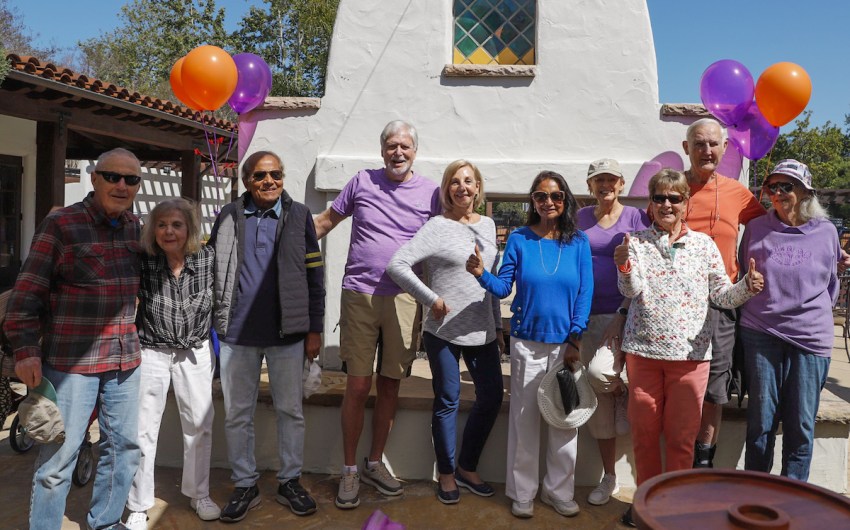
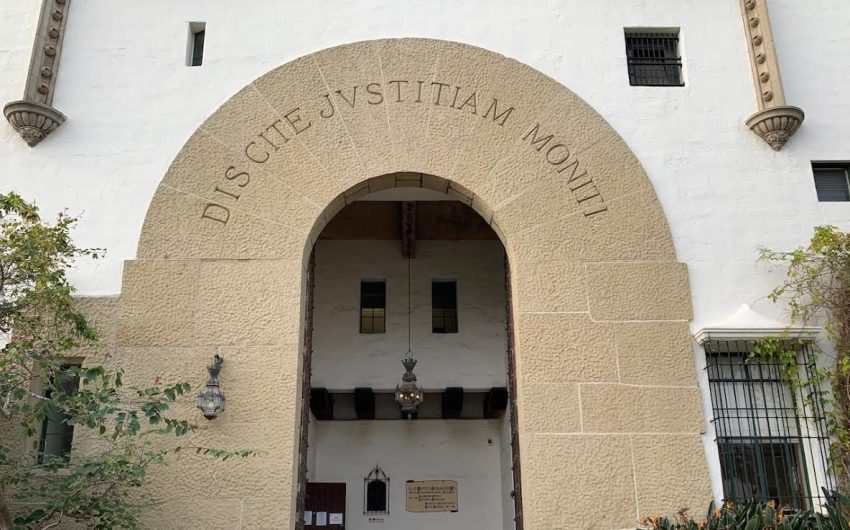
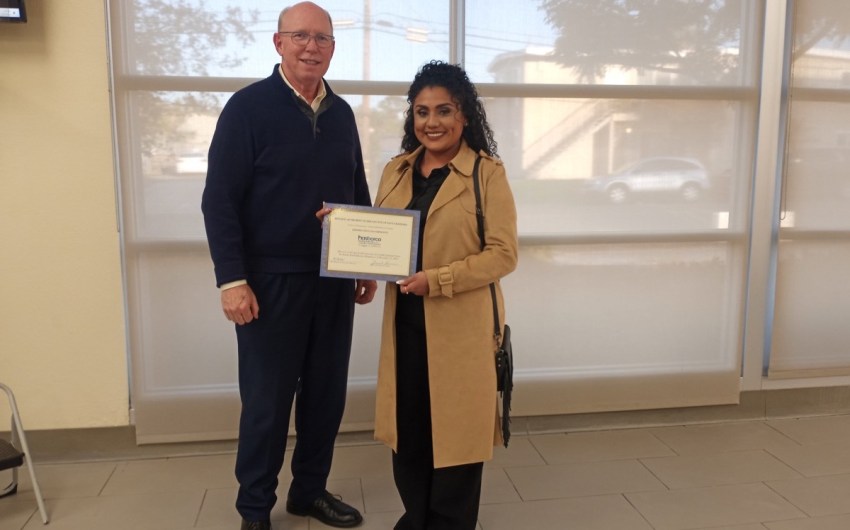
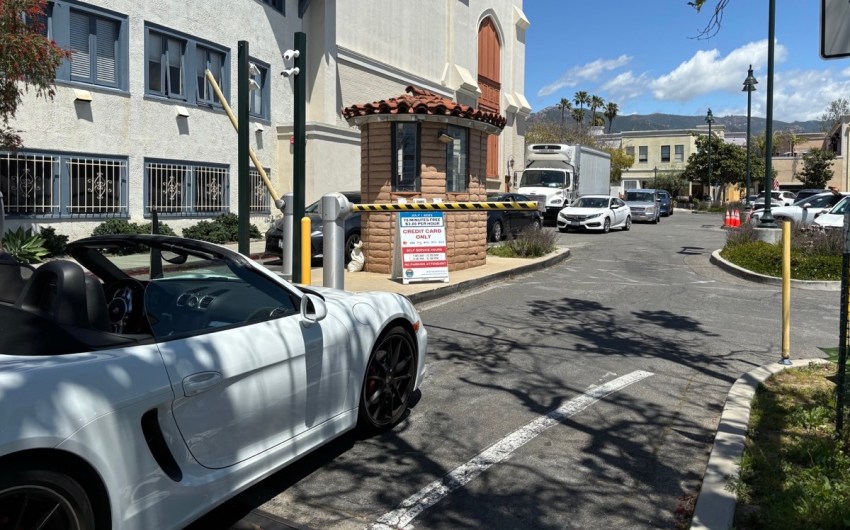
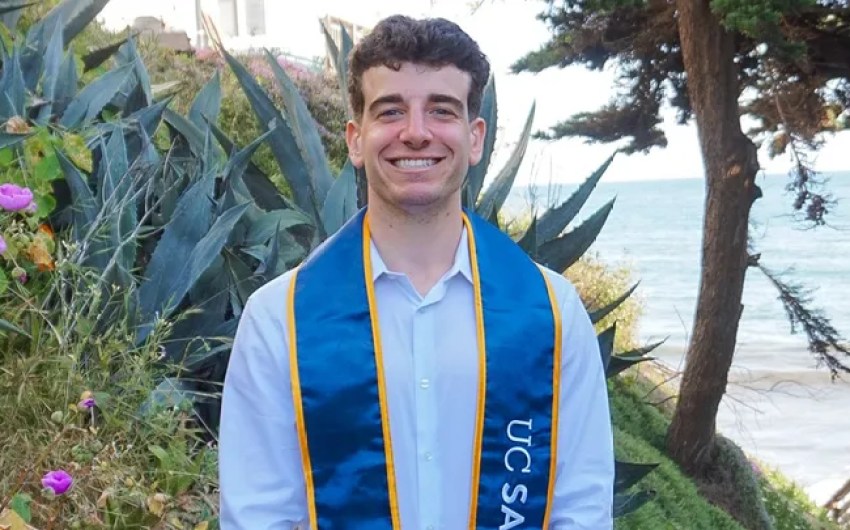
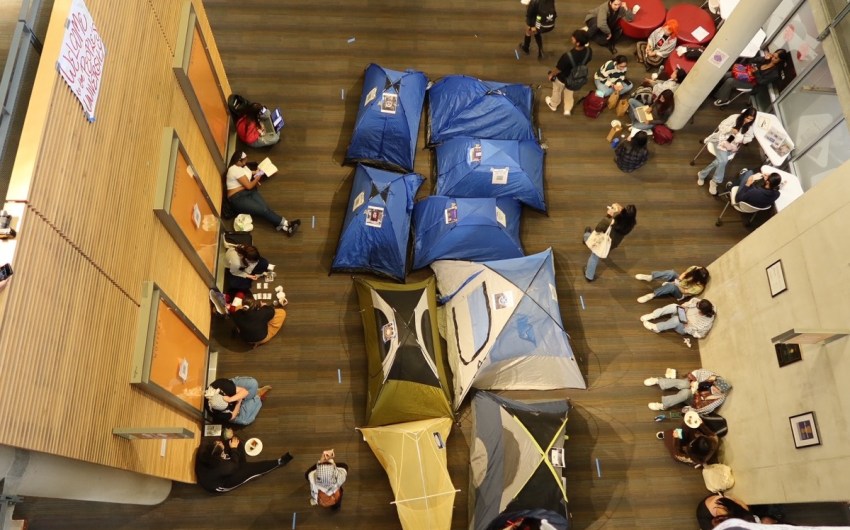

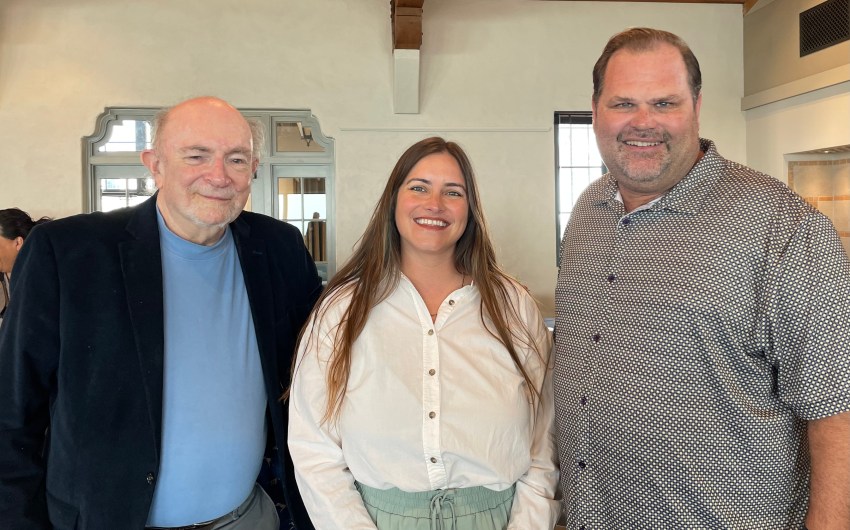
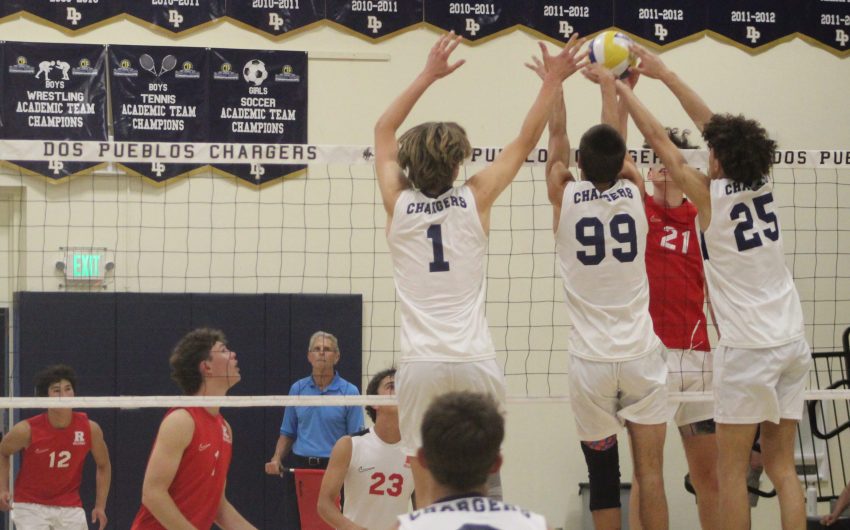







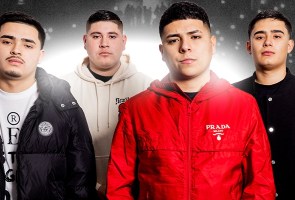


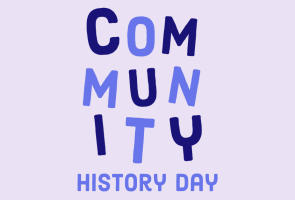



You must be logged in to post a comment.